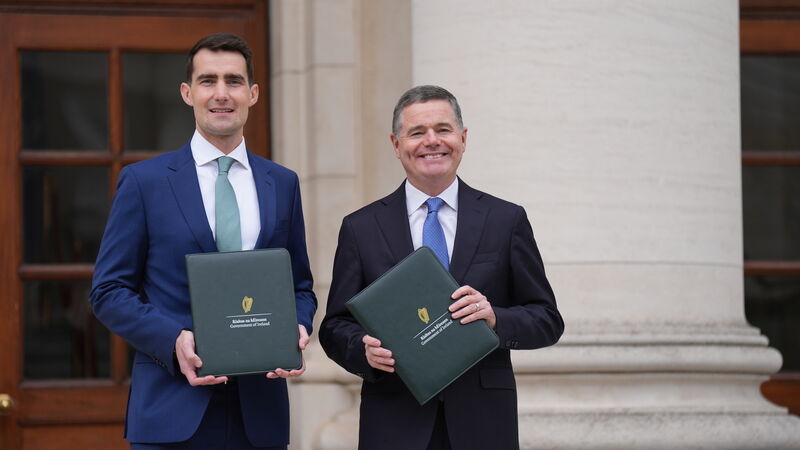Callers from ‘squeezed middle class’ quiz finance ministers over Budget 2026

Minister for Public Expenditure Jack Chambers and Minister for Finance Paschal Donohoe faced questions from radio listeners. Picture: Niall Carson/PA
Government ministers have reiterated their desire to protect the economy as they answered queries from members of the public the day after the budget was delivered.
Finance minister Paschal Donohoe and public expenditure minister Jack Chambers responded live to questions from listeners of RTÉ Radio One’s programme on Wednesday morning.











